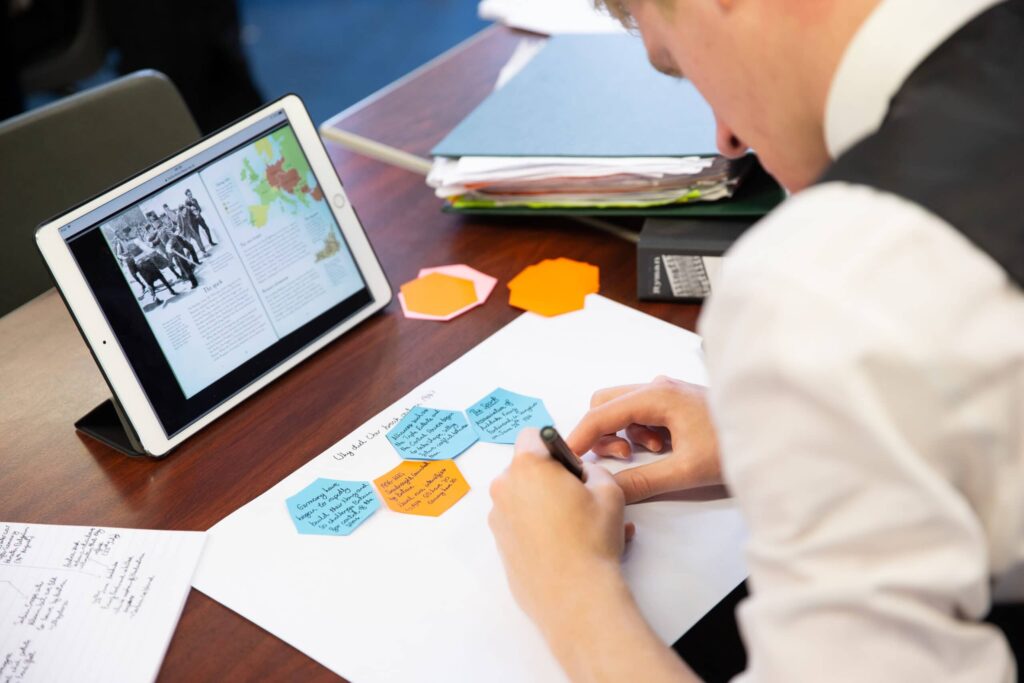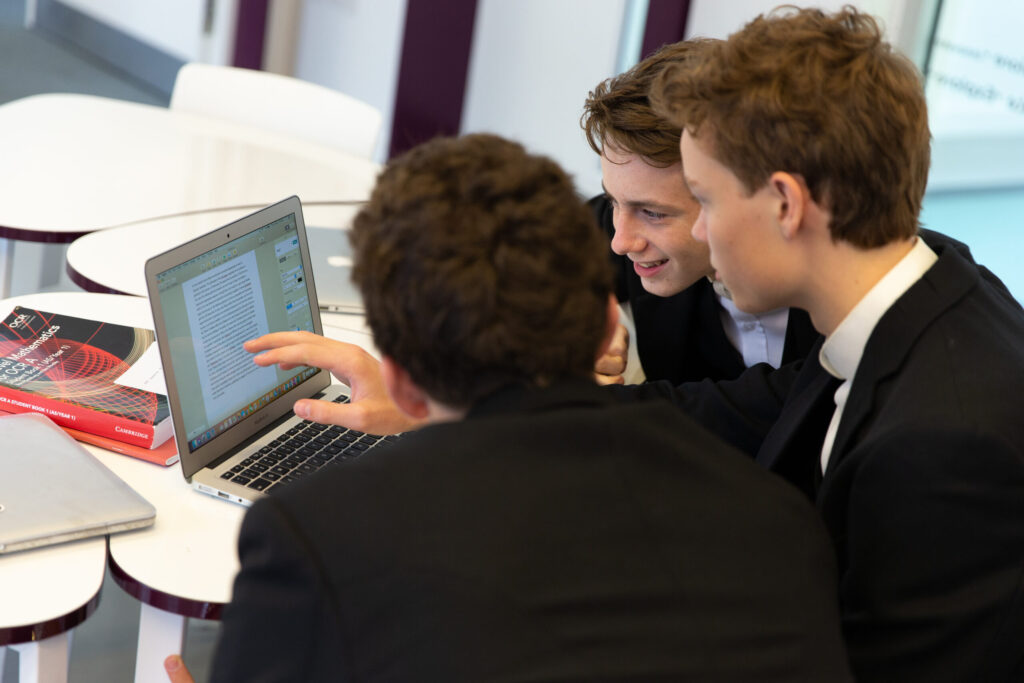Although the area of collaborative learning is a broad and multi-faceted area, this is an attempt to outline some initial thoughts.
A collaborative (or cooperative) learning approach involves pupils working together on activities or learning tasks in a group small enough for everyone to participate on a collective task that has been clearly assigned. Pupils in the group may work on separate tasks contributing to a common overall outcome, or work together on a shared task.
Some collaborative learning approaches put mixed ability teams or groups to work in competition with each other in order to drive more effective collaboration. There is a very wide range of approaches to collaborative and cooperative learning involving different kinds of organisation and tasks.
Why is collaborative learning beneficial to educational experiences?
- Learning is an active, constructive process. Through collaborative work pupils do not only take in new knowledge but they construct knowledge or they apply information and ideas to create something new; a process which is crucial if you want to academically stretch boys.
- It can promote more caring, supportive, and committed relationships among the community.
- It can develop pupils’ social competence and self-esteem.
Some obstacles to effective use of collaborative approaches:
- students’ lack of collaborative skills
- low-quality coordination among group members when they participated in problem-solving tasks.
- inappropriate behaviours such as ay attention to others’ opinions, interrupted them, and rejected alternative suggestions without justification.
- teachers often face challenges while structuring collaborative activities such as monitoring students’ on-task behaviour, managing group-work time, providing relevant materials, assigning individual roles, and establishing teamwork beliefs and behaviours
Before implementing a collaborative approach you might want to consider the following:
- Pupils need support and practice to work together; it is not a habit which comes naturally.
- Tasks need to be designed carefully so that working together can be effective and efficient’ otherwise pupils might become disengaged.
- Competitions can be an effective way to make collaborative learning more successful and encourage the group to work more cohesively.
- Lower achieving pupils must be told explicitly that they need to express their thoughts during the collaborative task, if they are to benefit from the process.
What are some of the collaborative skills that can be promoted?
- turn taking
- clarifying ideas
- disagreeing in an agreeable way
- sharing
- positive feedback
- helping others
- negotiating




